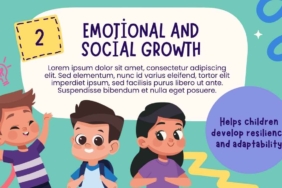In recent years, the impact of social media on user mental health has emerged as a crucial topic of discussion among psychologists, researchers, and the general public. As platforms like Facebook, Instagram, and Twitter become increasingly dominant in our lives, the potential harm to mental health cannot be overlooked.
What Are the Main Concerns About Social Media’s Impact?
Experts warn that excessive use of social media can lead to a variety of mental health issues, including:
- Anxiety: Frequent checking of notifications can cause stress and contribute to feelings of inadequacy.
- Depression: Studies have shown a correlation between heavy social media use and increased rates of depression.
- Low Self-Esteem: Comparing oneself to others’ curated lives can lower self-worth.
Who Is Most Affected?
Demographic data indicates that younger users, particularly teenagers and young adults, are the most vulnerable to social media’s negative effects. A study published in the Journal of Youth and Adolescence found that:
| Age Group | % Affected by Mental Health Issues |
|---|---|
| 13-18 years | 30% |
| 19-24 years | 25% |
| 25-34 years | 15% |
When Do These Issues Arise?
Many users report experiencing mental distress after prolonged use or exposure to negative content. This can occur daily, depending on factors such as:
- The amount of time spent online.
- The type of content consumed (positive vs. negative).
- Personal experiences and vulnerabilities.
Where Is Help Available?
If you or someone you know is struggling, help is available. Many organizations focus on addressing the mental health implications of social media. Resources include:
- Therapy and counseling services.
- Helplines and online support groups.
- Educational programs on healthy online habits.
How Can Users Protect Their Mental Health?
To mitigate the potential negative effects of social media, mental health professionals recommend:
- Setting limits on screen time.
- Curating online environments to follow positivity.
- Engaging in offline activities for balance.
Conclusion: Navigating Social Media Mindfully
The ongoing debate surrounding social media’s impact on mental health highlights a pressing concern for users and professionals alike. Striking a balance between online interaction and mental well-being is essential. By adopting healthy habits, users can navigate social media more mindfully, aiming for a positive experience.














